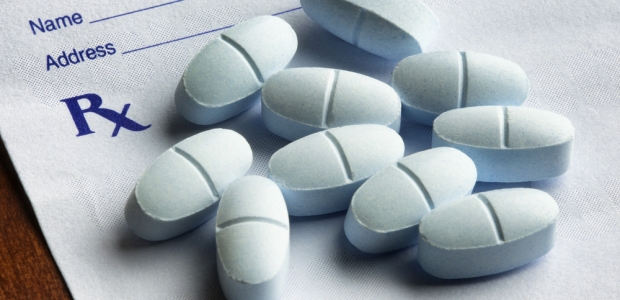
Arizona Under Statewide Opioid Health Emergency
The governor's declaration gives Arizona the ability to coordinate public health efforts between state, local, and private-sector partners and allows the state to utilize all of its public health resources, including by distributing naloxone throughout the community. The declaration and enhanced surveillance advisory will provide for enhanced reporting of overdose deaths from doctors and hospitals.
Arizona Gov. Doug Ducey signed an emergency declaration last week in response to a rising number of opioid deaths in the state, saying his state is taking the lead in the nation's opioid crisis.
His office said newly released data from the Arizona Department of Health Services show that in 2016, 790 Arizonans died from opioid overdoses — an average of more than two deaths per day and an increase of 74 percent during the past four years. His declaration directs the department to rapidly respond to this public health emergency.
"As the number of opioid overdoses and deaths increase at an alarming rate, we must take action. It's time to call this what it is — an emergency," he said. "Most of us know someone impacted by substance abuse — our family, our friends, our neighbors. Our hearts ache for them, but that isn't enough. We must do more. I'm declaring a statewide health emergency because we need to know more about the epidemic, including enhanced data that illustrates when and where these overdoses occur so that we can develop real, targeted solutions."
The declaration gives Arizona the ability to coordinate public health efforts between state, local, and private-sector partners and allows the state to utilize all of its public health resources, including by distributing naloxone throughout the community to help prevent drug overdose deaths. The declaration and enhanced surveillance advisory will provide for enhanced reporting of overdose deaths from doctors and hospitals.
"The only way we will be able to make an impact in the opioid epidemic is to come together as a community, and this declaration helps us move forward quickly," said Dr. Cara Christ, director of the department. "We will look into improving prescription practices, addressing poly drug use, and analyzing raw data on overdose deaths that occur to see where the problem areas are and learn how we can make changes to save lives."
The department will identify ways to:
- prevent prescription opioid drug abuse through appropriate prescribing practices
- develop guidelines to educate health care providers on responsible prescribing practices
- expand access to treatment, especially Medication Assisted Treatment (MAT)
- reverse overdoses through the distribution of naloxone
In a June 9 post on her agency's website, Christ, M.D., MS, said the department's Rules and Licensing teams have been coordinating with other ADHS experts to complete emergency rulemaking on opioids for health care institutions. "These rules will support healthcare institutions in developing policies and procedures for opioid prescribing and dispensing. Rules such as these will help ensure facilities educate patients on opioid risks and comply with specific best practices to reduce opioid dependence or overdose," she wrote. "Our Policy team has been hard at work developing recommendations for the Governor on an enhanced surveillance advisory, which is a requirement of the emergency declaration. Recommendations include required reporting of suspected opioid overdoses and deaths, neonatal abstinence syndrome, and naloxone administration and dispensing by health care providers, first responders, and pharmacies. Our Operations teams have been hard at work developing surveillance systems to collect this information and we’ve met with county health officials to brief them. We’re holding a meeting today with required data reporters to brief them on the enhanced surveillance recommendations and will provide additional information and training next week.
"We've also been hard at work developing a series of statewide trainings for naloxone administration. Naloxone, a medication that can be used to reverse opioid overdoses, can be administered by law enforcement officials, first responders, healthcare providers, and even community members, who encounter someone who may be experiencing an overdose. Providing training expands the number of partners in the community who can help save a life. Trainings will be offered in Flagstaff, Tucson, and Phoenix in the coming weeks. I have also signed standing orders for naloxone. These orders authorize any Arizona-licensed pharmacist to dispense naloxone to any individual in accordance with the order, which will help support naloxone distribution across the state."